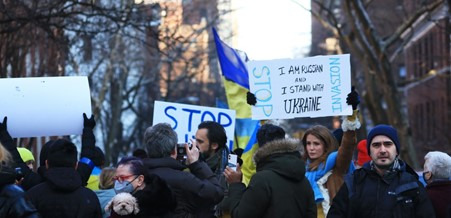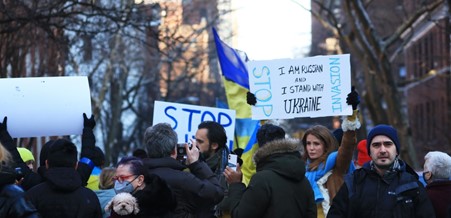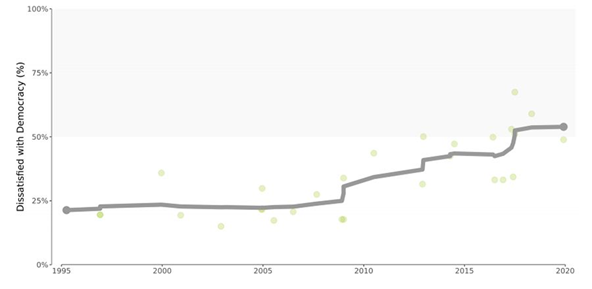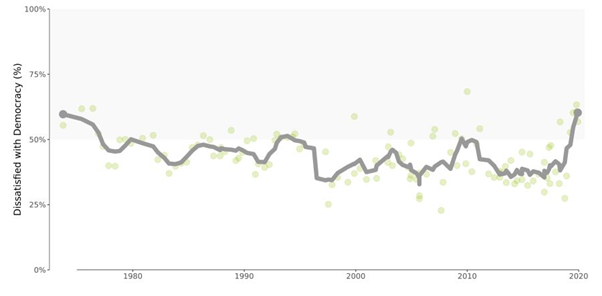
Evolving World Trade and New War

Ben Mellor
______________________________________________________________________________
This is part of University of Nottingham IPE & Global Development Coursework [1 of 3]
Just as the news cycle evolved from Brexit onto COVID-19, it is now inescapable to hear about the ongoing tragedy of Russia’s imperialistic and illegal invasion of Ukraine. Much of the coverage is (rightly) focused on both the atrocities committed as well as emotional individual stories.
What has received less coverage however is the impact of Russia’s invasion on the role of global trade. This post will focus on how trade evolved from World War II onwards, the system we currently live in, and how the War in Ukraine could fracture it.
Global Trade has passed through three distinct phases since the Second World War, which are outlined within Chapter 6 of the book ‘Global Political Economy: Evolution and Dynamics’. These three phases can be summarised as the following:
- 1) ‘Embedded Liberalism’, 1947-1979
- 2) Era of ‘Neo-Liberalism’, 1980-2009
- 3) Beyond ‘Neo-Liberalism’, 2009-onwards
To provide context, ‘Embedded Liberalism’ refers to an era of a symbiotic relationship between free trade and state intervention, especially with the introduction of the ‘GATT’ (General Agreement on Trade and Tariffs) in 1947 which served as a predecessor to the WTO (World Trade Organisation).
This ended however as neo-liberal ideology became dominant amongst western governments; political advocates such as Thatcher and Reagan ushered in an era of limited regulations and ‘small government’. Despite its dominance spanning three decades, the 2007-09 Great Recession caused unregulated free trade to be questioned, as governments did not prevent the financial failure.

Above: USA

Above: UK
As can be seen in the above graphs, the Great Recession caused a rise in dissatisfaction with democracy, which is crucial because those who are dissatisfied tend to supply greater support to populist parties. It is populism which has caused the Neo-Liberal trade order to be at risk, with the 2016 success of both Trump and Brexit supplying the biggest headache.
This finally brings us back to Ukraine, as the interconnected nature of global free trade meets the brick-wall of retaliatory sanctions. The economic repercussions have supplied populists the exact fuel their fire needed, especially after a frosty few years of Joe Biden’s 2020 victory, and a plurality of people viewing it as wrong to leave the EU.
At their core, populists build upon the International Relations theory of Neo-Realists, who believe the state is the most important international actor. By increasing international co-operation, or becoming dependent upon foreign resources (e.g., European dependence on Russian gas), it can open a large security risk.
This is the exact national security risk European nations find themselves in, with a scramble [another example] to find an alternative supplier of resources as economic warfare with Russia continues. As international trade becomes riskier in the current global environment, it is highly likely nations will continue down the Neo-Realist/Populist path of placing national interests ahead of free trade.
To conclude, War in Ukraine will likely provide fuel to the populist cause of economic nationalism, further causing a decline in pro-business, pro-free trade liberal thinking.
Ben Mellor
_____________________________________________________________________________
Featured image courtesy of Tong Su via Unsplash. Image license found here. The image has been cropped vertically.
In article images courtesy of the University of Cambridge via this Story. No changes were made to these images.
Post a comment